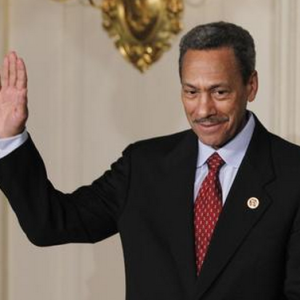His decision to write off Fannie and Freddie’s private shareholders is an outright disregard of his fiduciary duties
A recent op-ed by William M. Isaac in the Wall Street Journal captures the exasperation that many of us have toward the government whose primary objective seems to be to stonewall the claim of all the private shareholders of The Federal National Mortgage Association, commonly known as Fannie Mae, and its somewhat smaller companion, Federal Home Loan Mortgage Corporation, known as Freddie Mac. As Mr. Isaac reports, Mel Watt, the Director of the Federal Housing Financial Agency (FHFA), wants to make sure that the private shareholders of Fannie and Freddie don’t get a penny from their recent revival.
This past May, he stated publicly that he does not lay “awake worrying what’s fair to the shareholders.” Yet he should rest in bed with a cold sweat because of his warped view of his institutional role. He is the conservator under FHFA of Fannie and Freddie, as HERA states explicitly that “a conservator’s goal is to continue the operations of a regulated entity, rehabilitate it and return it to a safe, sound and solvent condition.” It owes the duty to the shareholders not the United States Treasury. For Watt to say that he is supposed “to think about how can [he] do what is responsible to the taxpayers” reveals a gross dereliction of duty in office, sufficient in my judgment to warrant his removal from the office.
The simple point here is that Mel Watt is not the representative of the United States Treasury, which is responsible to taxpayers under the Housing and Economic Recovery Act of 2008 (HERA). It discharged its responsibility under HERA by setting the terms of the September 2008 bailout in ways that protected taxpayers from a sweetheart deal made on behalf of the private shareholders of Fannie and Freddie. Under the statute, Mr. Watt owes no duty whatsoever to the Treasury. Instead once his predecessor in office, Mr. Edward DeMarco, as acting director, decided to throw Fannie and Freddie into conservatorship, Mr. Watt succeeded to that duty, which in effect requires that he takes steps to nurse the companies back to their financial health.
By statutory design, his interest in dealing with these corporations is supposed to be adverse to Treasury. The basic theory here is that the FHFA director protects the private shareholders just as Treasury protects the taxpayers. If each of the two parties discharges its respective fiduciary duties, there is good reason to believe that the transaction in question is fair to both parties to it.
It follows therefore that Mr. Watt only compounds that error when he claims that “there would be no Fannie and Freddie but for the taxpayers.” That point would be relevant if the current lawsuits over the cash received by Fannie and Freddie were about the initial decision of FHFA to bail the companies out. But of all people, Mr. Watt ought to know that this is water over the dam. As Mr. Watt points out, the only question on the table now is whether the United States Treasury will honor the terms of the Preferred Stock Purchase Agreement of 2008, which called for the $188 billion in advances to carry with it 10 percent interest if paid promptly and 12 percent interest if deferred. Once again, Mr. Watt forgets whom he is working for, and a fiduciary who does not know who the beneficiaries are is not worthy of staying in office.
Mr. Watt’s careless attitude toward his fiduciary role is what makes him all too receptive to the Third Amendment to the initial 2008 agreement that Mr. DeMarco signed, as conservator, on behalf of FHFA on August 17, 2012. The point of any voluntary agreement is to make changes that benefit both parties to the arrangement. It is not for the fiduciary of one party to give away the farm to the trading partner, which is what the Third Amendment did. By calling for all dividends to be paid over to the Treasury, it essentially raised the interest rate from ten percent to some huge number that that represents for each period of the payments on the outstanding balance, with no possibility of paying off the principal no matter how profitable Fannie and Freddie become.
The overall picture is not pretty. HERA gives Watt extensive powers as conservator of Fannie and Freddie, which he claims he can exercise adversely to the position of the shareholders. The Third Amendment takes all the economics of the deal and dumps them in the lap of the government. The two valuable rights of shareholders deal with control and money, respectively. If both of these are gone, the shareholders are wiped out even if they retain nominal title to shares that are worth absolutely nothing. The government takes the position that the shareholders have nothing to complain about because the shares of Fannie and Freddie are trading at a positive value. But the positive share value reflects the market judgment of the value of the lawsuit, which should to my mind be higher than it currently is. If the government has its way, all that value will be drained out of the private shares in Fannie and Freddie, which will then trade at exactly zero.
Mr. Watt may not lose sleep over his explicit repudiation of his fiduciary duties, but a lot of other people will. And if the government hopes to recapitalize the mortgage market with private funds it better think again. Any government that is brazen enough to defend that outright grab of the Third Amendment on this occasion will be clever enough to come up with some other ploy down the road. Future investors will be well advised to steer clear, because in Mr. Watt’s words, all bets are off in any dealing with the government whose basic view is that all financial agreements on behalf of private investors are made to be broken.

